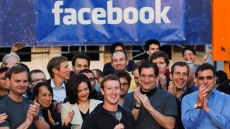LOS ANGELES — The Pokemon Go craze has sent legions of players hiking around cities and battling with "pocket monsters" on their smartphones. It marks a turning point for augmented reality, or technology that superimposes a digital facade on the real world.
But the game's popularity is also spilling unintended consequences into everyday life, from annoyed property owners dealing with hordes of monster hunters to store owners using the game to attract customers.
Here's a look at some of the bigger Pokequestions that have emerged since the game went live last Wednesday:
CAN DIGITAL LURES LEAD TO REAL CASH?
Some shops are exploring ways to use Pokemon Go's digital "lures" to drum up business.
An Atlanta cafe owned by digital ad agency Huge turned out to be roughly 30 feet away from two prominent "Pokestops" where players go to stock up on digital gear. So it spent about $40 in real money to add digital "lures" to the stops, refreshing them every 30 minutes. The lures increase the chance that rare Pokemon with names like "Starmie" and "Poliwag" turn up nearby — drawing players in turn.
"Our corner was essentially lit up all day long," says Huge executive creative director Derek Fridman.

In San Francisco, enthusiastic players working for Kawika's Ocean Beach Deli likewise set out lures and branded the store as a "charging station" for drained phones. (The game is notoriously hard on batteries.)
Given that the shop is bracketed by Pokestops on one side and a battle arena on the other, players "have no choice but to walk past us," says owner David Nottage III. "So we put up some signs." The deli plans additional Pokemon-related activities in the future.
WHO'S TO BLAME WHEN PLAYING REALLY GETS OUT OF HAND?
In St. Louis, police say robbers perched near attractive digital spots to rob players engrossed in the game. A man who lives in a former church says his home — now also a Pokestop — has become a digital magnet for Pokemon Go players, who sometimes block his driveway and passing traffic as they pull over to stare at their phones.
Phoenix police are telling people not to trespass while playing the game. New York's subway is warning people not to jump onto the tracks to chase digital "Rattatas." At the Associated Press bureau in Los Angeles, an outdated reference to a statue no longer on the property beckons Pokemon players in from the street.

Todd Richmond, a director at the Institute for Creative Technologies at the University of Southern California, says a big debate is brewing over who controls digital assets associated with real world property.
"This is the problem with technology adoption — we don't have time to slowly dip our toe in the water," he says. "Tenants have had no say, no input, and now they're part of it."
HOW BIG CAN AUGMENTED REALITY GET?
Stock in Nintendo, which part owns Pokemon Go, jumped 25 per cent on Monday, adding about $5 billion to its market value as investors assessed the breakout game.
But Jefferies analyst Atul Goyal says that's just the tip of the iceberg and now targets a share price of 30,000 yen, nearly 50 per cent higher still. Nintendo is transitioning from console games to smartphone games, and "it has just started that journey," Goyal says.
The game's success on smartphones also could spur faster development from hardware makers — Microsoft with its HoloLens, the secretive startup Magic Leap, or Google, which could still revive its failed Glass headgear, says Timothy Carone, a professor at the University of Notre Dame's Mendoza College of Business.
"The reaction (to Pokemon Go) is a quick of vote of 'Yeah, they got this right,'" Carone says. "My guess is that a lot of developers have gone back to figure out how to take this approach."

DOES THIS AFFECT MY PRIVACY?
Adam Reeve, principal architect of security firm Red Owl, however, found that Pokemon Go required overly broad permission for those using a Google account as a sign-in. Even setting aside the location data collected by the app, he said, the app is a "huge security risk."
He noted the app, in theory, could allow Pokemon Go to read one's Gmail, send email as you and access your Google search history.
On Monday, Niantic said in a blog post that it never intended to request such sweeping data access, hasn't collected information beyond the user's ID and email address, and is working with Google to pare back the authorization.




